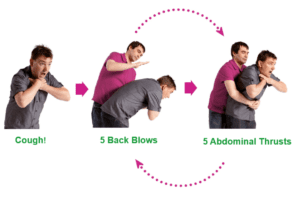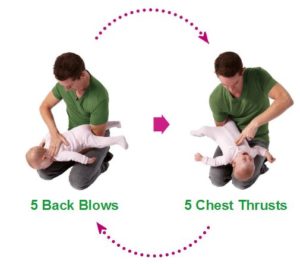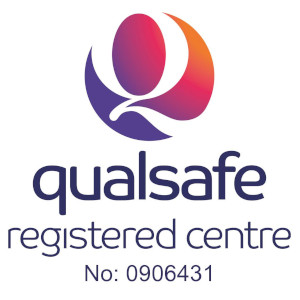Easter Alert: The Hidden Danger of Mini Eggs – Choking Hazards for Children
As Easter approaches, families around the world eagerly prepare for festivities, often including traditions like egg hunts and sweet treats. Are mini eggs eggs safe to eat? Among these treats, mini eggs hold a special place, cherished for their vibrant colours and delicious taste. However, beneath their charming appearance lies a hidden danger that parents and caregivers must be vigilant about; the risk of choking, particularly among young children.
Mini eggs, with their small size and hard shell, pose a significant choking hazard, especially for children under the age of five. So, are mini eggs safe to eat? These miniature confections can easily become lodged in a child’s airway, leading to a life-threatening emergency. The danger is exacerbated by the fact that children may not fully understand the risks associated with consuming such candies hastily or without proper supervision.
The allure of mini eggs, with their enticing colours and tempting textures, can be irresistible to children. However, as parents, it is our responsibility to ensure that these treats are enjoyed safely. Here are some essential tips to help prevent choking incidents during Easter celebrations:
- Supervision is Key: Always supervise young children when they are eating mini eggs or any other small candies. Encourage them to sit down while eating and take small bites to reduce the risk of choking.
- Educate Children: Teach children about the importance of chewing their food thoroughly and not rushing while eating. Explain the potential dangers of swallowing sweets whole or without chewing properly.
- Choose Alternatives: Consider opting for larger chocolate eggs or other Easter treats that are less likely to pose a choking hazard. Alternatively, you can provide safer alternatives like stickers, small toys, or books for Easter egg hunts.
- Be Prepared: Take a first aid/CPR course to equip yourself with the skills needed to respond effectively in case of a choking emergency. Keep emergency contact numbers, including poison control and local emergency services, readily accessible.
- Spread Awareness: Share information about the choking hazards of mini eggs and other small candies with friends, family, and your community. Together, we can raise awareness and prevent avoidable accidents.
By taking proactive measures and staying vigilant, we can ensure that Easter remains a joyous occasion for all, free from the shadows of preventable tragedies. Let’s make this Easter a celebration of love, laughter, and most importantly, safety for our little ones.
The Risk of Children Choking
On average, a child dies in the UK every month from choking, and hundreds more require hospital treatment. It can happen quickly, and the effects can be devastating.
2 – 4 babies choke to death each year in England and Wales. It is in fact the third most common cause of death for babies. Whilst you shouldn’t be alarmed, you should equip yourself with as much information as possible in order to reduce the chances of choking. You should also learn how to help if your baby does choke.
Understanding what items pose a choking hazard is crucial for safeguarding our little ones. Here’s a comprehensive guide to common choking hazards for children:
Food Items:
- Small candies and chocolates: Miniature sweets, like mini eggs or jellybeans, can easily become lodged in a child’s airway.
- Grapes: Their smooth texture and round shape make grapes particularly hazardous, especially for young children.
- Hot dogs: Their cylindrical shape and tendency to break into small pieces can pose a choking risk.
- Nuts and seeds: Hard and small nuts, as well as seeds like popcorn kernels, can be challenging for young children to chew properly.
Non-Food Items:
- Small toys and toy parts: Pieces from toys intended for older children or toys with detachable parts can pose a choking hazard.
- Balloons: If not handled properly, balloons can rupture and create small, easily ingestible pieces.
- Coins: Small coins can easily be mistaken for food by young children and accidentally swallowed.
- Button batteries: These small, round batteries can be found in electronic devices and pose a severe risk if ingested.
Household Items:
- Small objects: Items like buttons, beads, and marbles can be enticing for young children but are also potential choking hazards.
- Hair accessories: Clips, barrettes, and small hair ties can be accidentally swallowed by curious toddlers.
- Magnets: If ingested, multiple magnets can attract to each other through intestinal walls, causing serious complications.
Office and Craft Supplies:
- Pushpins and paperclips: Small office supplies can easily find their way into a child’s hands and mouth.
- Craft materials: Beads, sequins, and other small craft materials should be kept out of reach of young children.
Preventing Choking Incidents:
- Supervision: Always supervise young children during meal times and play to prevent choking incidents.
- Proper Food Preparation: Cut food into age-appropriate sizes and avoid giving young children foods that are difficult to chew.
- Childproofing: Keep small items out of reach and ensure that toys are age-appropriate and in good condition.
- CPR Training: Learn cardiopulmonary resuscitation (CPR) techniques to respond effectively in case of a choking emergency.
By being aware of these common choking hazards and taking proactive measures to prevent accidents, we can create a safer environment for our children to grow, explore, and thrive.
How to treat a Child who is Choking
Choking can easily happen while eating or drinking. In children more common with objects such as marbles, Lego, and small parts.
In first aid we recognise choking in two ways;
Mild Choking is where the casualty will be able to cough, answer your questions – “are you choking, and can you cough?”
Severe Choking is when the casualty is having difficulties breathing, cannot answer your question “can you cough?”, unable to cough, distressed look on their face and will become unconscious if untreated.
Choking Treatment – Adults and children over 1 year
First, recognise that the patient is choking and advise them to cough, which may help. If young children have not completed the verbal milestone, they may not respond.
Back Blows
Next; shout for help while starting the treatment of choking.
Lean the casualty forward as shown in the pictures below, and give 5 firm sharp back blows between the shoulder blades with the heel of your hand. If the object is still stuck completely, you need to start abdominal thrusts.
Abdominal Thrusts
Stand behind the casualty and place both arms around them. Make a fist with one hand and place it just above the belly button. With your other hand grasp the fist hand, then pull sharply inwards and upwards. Do this up to 5 times.
The aim is to relieve the choking casualty with each thrust or back blow rather than give all 5.
If the object is still not cleared – call 999 if it hasn’t already been called, and continue with 5 back blows and 5 abdominal thrusts. If the casualty becomes unconscious help the casualty to the floor and starts compressions.

Helping a choking baby – under 12 months old
Do not use abdominal thrusts for a baby – use chest thrusts. Chest thrusts are performed using your two pictures as picture below, in the middle of the baby’s chest.

To prevent babies and young children from choking;
- cut their foods into very small pieces
- supervise children while eating
- encourage children to sit and eat rather than letting them walk around or play.
Warning
Children under 4 years should not be given mini eggs. There is a warning in red bold letters on the reverse of the packaging. Smarties are also not suggested for consumption by small children. Are mini eggs safe to eat?
Our First Aid at Work Courses
All of our courses are tailored for the group of learners in a fun and friendly way. We consider your start and end times to adapt to your staff schedule. We can add any specifics from your polices, systems of work or previous accidents and risk assessments amendments. On our courses we can add any extra modules or certain previous accidents or near misses. The first aid courses can be adapted to include an element of health and safety. You are really getting a lot for your money and time taking courses with HMB Training Services.
Emergency first aid at work courses near me;
The Emergency First Aid at Work course is a vital training designed to equip individuals with the necessary skills to handle emergency situations in the workplace.
First Aid at Work;
The first aid at work courses near me are a comprehensive training course designed to provide individuals with the knowledge and skills necessary to effectively respond to a wide range of medical emergencies in the workplace.
Why is it vital to know how to administer First Aid;
- Reduce accidents and injuries in your workplace
- Quick reaction and speed in administrating first aid will help save lives
- Reduce the number of incidents by sufficient trained first aiders
- Become more confident and knowledgeable in treating someone
- Increases safety within the workplace; having first aid training promotes a sense of safety and well-being
- Reduce the cost to the employer; reduce staff absences and fines from HSE
- First aid Training is a form of team-building activity
Why book your Training with HMB Training Services Ltd
How can HMB Training Services help you? HMB Training Services was created in August 2016 by founder and director Heather Marie Bird. Heather has worked at large companies such as Cat Finning and A-Plant as well as smaller companies and schools.
HMB Training Services can help you with the following:
- Emergency First Aid
- First Aid at Work
- Re-qualifying First Aid
- Annual First Aid refreshers
- Health & Safety
- Manual Handling
- Fire Awareness
- Fire Marshall
- Mental Health First Aid
We can help manage your certifications by reminding you when renewals become due so that you don’t have to keep track of everyone’s individual renewal dates.
We can offer times to suit your business needs and can visit your company to train groups of four or more people. Our training sessions are adaptive to the audience and we can arrange to include any additional modules that may be considered relevant for your particular business.
If you are looking for first aid at work curse and want to know more about ; Are mini eggs safe to eat, please get in touch.
Read more blogs here: https://www.hmbtrainingservices.co.uk/latest-news
Additionally, please do call us on 01543 453338 to see how we can help with delivering group training courses and help you learn more on; Are mini eggs safe to eat?



